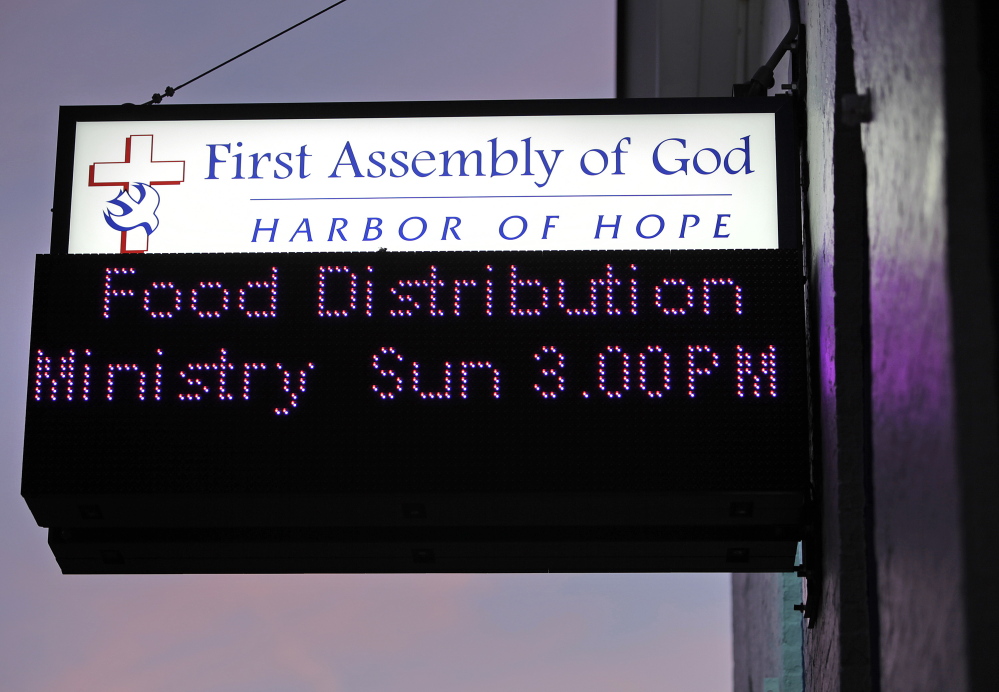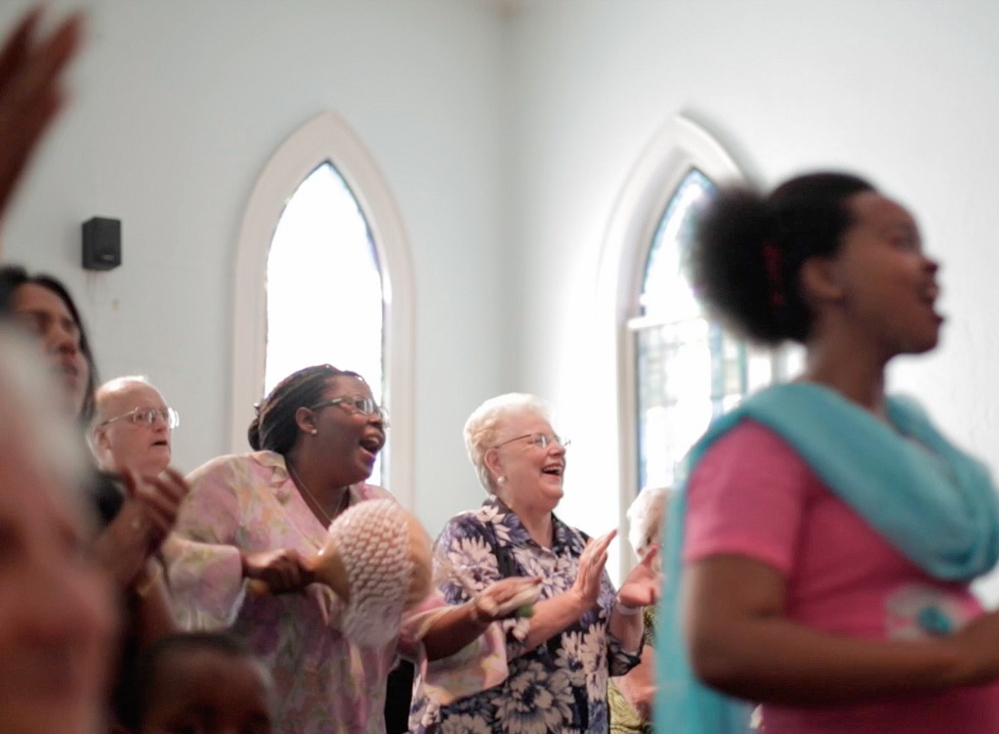On a bright Sunday morning, Angie Guillette stands in the First Assembly of God church on Cumberland Avenue in Portland singing her heart out. Arms raised above her head, Guillette is swaying – along with the rest of the congregation – to a hymn played by the church organist.
Two hours later she’s still humming as she wipes down a counter in the church’s cramped basement kitchen. In the next room, boxes full of food are piled high on sturdy tables. Each week after the Sunday service, Guillette helps distribute that food to hundreds of families in this inner-city neighborhood.
That, she says, is what church is all about.
“It’s about serving God by serving people,” says Guillette, 74. “Before where I went – it was a nice church, don’t get me wrong – but I felt like all I was doing was going there for an hour and absorbing a little and leaving. I wasn’t doing anything to serve people. When I came here, it’s different.”
The church started its food pantry in 2007 after Pastor Memana Abraham had a conversation with a homeless man following an evening service.
“Before he left,” says Abraham, “he asked, ‘Pastor, is there anything here to eat? I’m hungry.’ And I said: ‘I’m so sorry we don’t have anything here. We don’t keep food in our church.’ ”
That moment touched Abraham’s heart. He gave the man a few dollars and made a phone call.
“I called one of our people and said, ‘God willing, next Sunday on, we should have a loaf of bread and a peanut butter jar and jelly jars always in this church.'”
That loaf of bread and those jars of peanut butter and jelly have multiplied.
Today the members of this small congregation – many of whom have a tough time making ends meet themselves, and many of whom are refugees – give away up to 10,000 pounds of food every week.
That’s the equivalent of 8,000 meals.
“It means that a lot of people who don’t have any food will now have something to eat,” says food pantry volunteer Alicia Johnston.
The food pantry is open Sunday afternoons, but by late morning there’s usually a long line snaking around the building and spilling out onto a nearby side street.
Viola Silver, 91, is a regular.
“I think it’s wonderful,” Silver says, “’cause I don’t have a lot of money to go places and get stuff, so I come here.”
Silver says there are other places in Portland to get food, but she likes the people here. They’re kind. And they don’t judge.
First Assembly of God is a conservative, fundamentalist church. But there’s no preaching in the food line.
“Yes, there’s the religion aspect,” says April Barter, who stopped by to pick up some food for her elderly aunt, “but it’s about community and what the community needs.”
Some of the food is donated by Hannaford, Panera Bread and other companies. The rest the church buys from the Good Shepard Food-Bank in Auburn.
“They’re a great partner,” says Clara Whitney, Good Shepard’s communications manager. “They’re distributing a tremendous amount of food to families in a very high-need area of the city of Portland. It’s amazing what they’re able to accomplish given the limited space they have.”
It takes an army of volunteers to organize this effort. At the helm is 62-year-old Baby Matthew. (That’s his real name – Matthew was born in India, the “baby” in a family of six.)
“From my childhood,” says Matthew, “my parents taught me to serve the community.”
On his days off from his job as an operating room nurse at Central Maine Medical Center in Lewiston, Matthew makes the rounds, picking up boxes of fresh produce and nonperishables at various locations and filling the church van to the brim.
Some weeks he worries about not having enough food. But somehow there’s always plenty.
“It’s a miracle,” Matthew says, nodding his head. “A miracle.”
The food pantry hours are advertised in bold colors on a large electronic sign that hangs over the sidewalk. At the top of the sign, under the church’s name, are the words “Harbor of Hope.”
That’s the message that Pastor Abraham believes this church – and its food pantry – send to those neighbors who are struggling.
“In spite of everything negative in their lives,” he says, “there is always hope.”
Send questions/comments to the editors.




